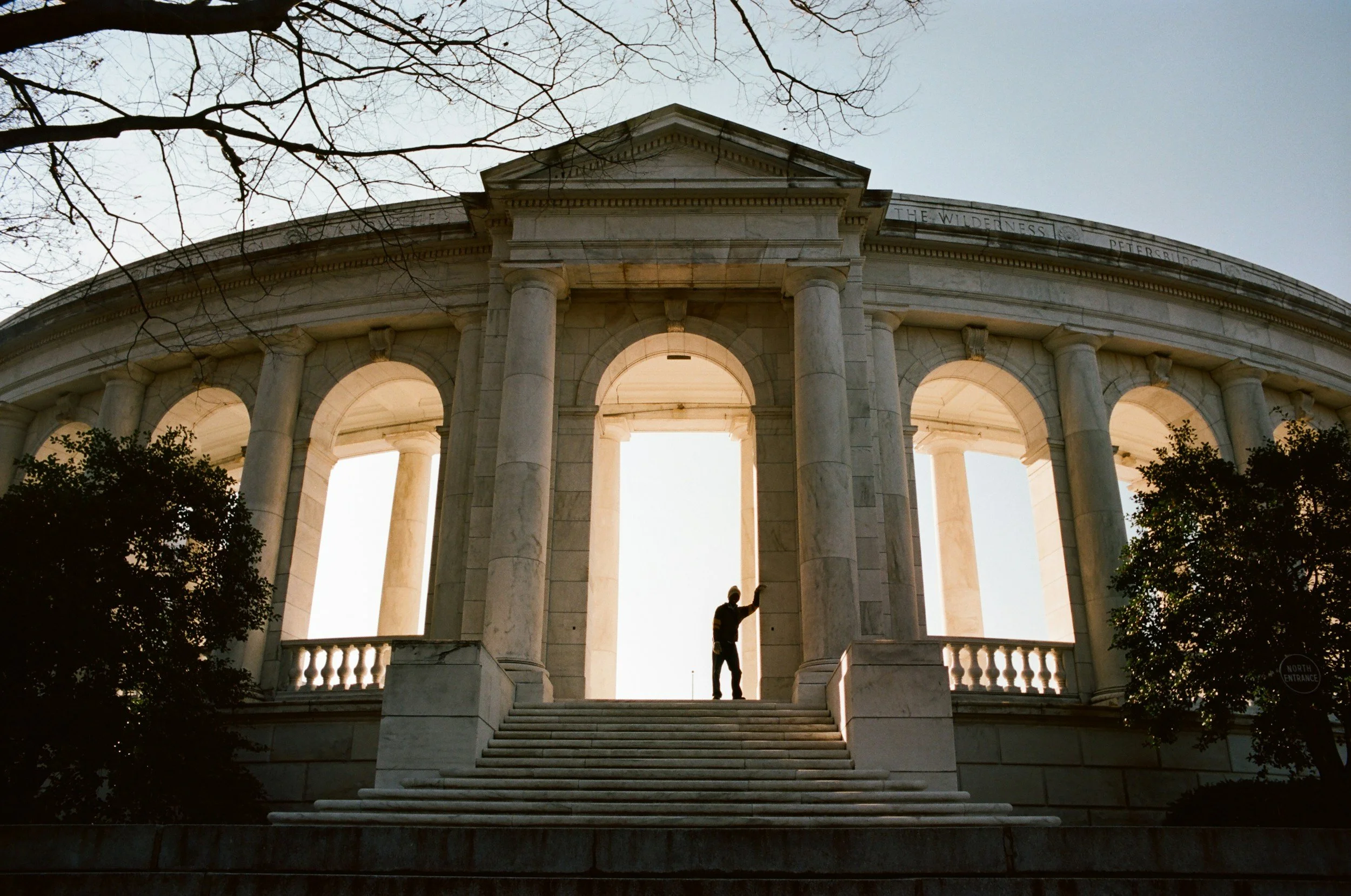Navigating Loneliness in The Nation’s Capital: Thoughts from an Arlington, VA Therapist
Takeaway: We human beings are hardwired for connection and interaction. When we perceive an absence of that, we can feel lonely. Fortunately, there are things we can do to alleviate loneliness and navigate lonely times with more flexibility and resiliency.
If you live in Washington, D.C., Northern Virginia, or the Maryland Suburbs, odds are that you or someone you know is lonely, according to a recent study that deems the nation’s capital as the loneliest city in the U.S.
With election cycles and its population of young professionals leading to what seems like a constant churn of people moving in and out, the DMV seems to breed the perfect conditions for loneliness:
The cost of living is high, and over-working at the expense of personal relationships can be common. Many flock here for school or job assignments, only to leave once it’s over. And, of course, there’s the ever-growing presence of technology – wielding its way into all facets of our lives, keeping us glued to our screens and pulling us away from human interactions.
It can be easy to feel lonely here. In your car, on the metro, stuck in traffic. In your neighborhood, perhaps feeling nations away from friends, family, or colleagues across town. At home...by yourself.
Finding new friends, dating, and even maintaining relationships can be difficult. It’s understandable why the topic of loneliness comes up often in my therapy practice.
I’m Dr. Victoria Bathe, a Licensed Clinical Psychologist in Virginia and Washington, D.C. Read on to learn about loneliness and what you can do about it.
What is loneliness?
While related to the relatively straightforward construct of social isolation or being alone, loneliness might be better captured by this definition:
“...a distressing feeling that accompanies the perception that one’s social needs are not being met by the quantity or especially the quality of one’s social relationships” (Hawkley & Cacioppo, 2010; p.2).
The experience of loneliness varies greatly from person to person and brings about a range of emotions. Some common aspects of the experience include:
Uneasiness or discomfort arising from actual solitude, or the perception of being alone.
Emotional emptiness or numbness, often accompanied by a yearning for connection.
Feelings of depression, which can include sadness, having low energy, and a sense of hopelessness (Loneliness can both contribute to, and result from these depressive feelings).
Feeling disconnected or detached from others, which can be both physical and emotional.
Social anxiety, creating barriers in reaching out and engaging with others, which tends to deepen the sense of loneliness.
Negative self-perception, accompanied by beliefs like, “I’m unlikeable,” or “I’m incapable of making meaningful connections.”
What your loneliness might be trying to tell you
—You’re Human.
We were built to connect with others. You might be thinking, “I should be able to be by myself,” or “I want to just be comfortable being alone, what is wrong with me!” The reality is, is that you could be the toughest person on the planet, and still, it wouldn’t matter. Sooner or later, you’d feel lonely. You are not an island and were not built that way. You’re not immune to loneliness, no one is. Loneliness is baked right into the human experience, so when you feel it, see if you can shift your perspective to see the lonely feeling for what it is: Proof that you’re alive.
—You Wish for Closer Connection.
Sometimes, loneliness can cue us to deepen our connection with someone already in our lives. For instance, if you find yourself feeling lonely sitting on the couch watching TV with your partner, this could signify an opportunity to reach out and connect with them in a new or deeper way.
—You Have Unused Strengths to Share.
When feeling lonely, there can be a natural impulse to look to others to “fix” the feeling. We might tell ourselves that if only our partner met our needs more, or if only our friends and family invited us out more, then we wouldn’t feel this way.
It is, of course, vitally important to practice effective communication and share our needs and wishes with others, but the reality is that much of happiness, and our loneliness, is within our control.
One way to take the responsibility back into our own hands is to put our talents to good use. Try volunteering with a local organization, help a neighbor complete a task, create something just for the fun of it, or heck, start a blog (like I’m doing here!). You might be surprised to find that loneliness tends to subside as you tap into your natural strengths.
What To Do When You’re Lonely
Connect
Perhaps the most powerful antidote to loneliness is connection – meaningful, genuine connection with others.
Reach out to friends and loved ones, share your struggles, vulnerabilities, and your recent successes, no matter how small.
If you’re not in the habit of doing this, it might feel awkward or weird at first, but remember that loneliness touches everyone at some point, and most people like connecting with others, especially on a deeper level. It’s likely that the other person would be flattered that you thought to reach out to them.
If worries about burdening or inconveniencing others are a barrier to reaching out, try imagining how you would feel if a friend or acquaintance asked you for a favor. Oftentimes, it engenders good feelings. It can feel nice to be needed and seen as trusted source of support. In this way, asking others for help can be a gift to them.
Shift Perspective
Although loneliness can be painful, recognize that feeling lonely is an emotional state and NOT a reflection of our own worth, character, or uniqueness (remember, everyone feels lonely at times). When we do this, we can approach our lonely feelings with more compassion and understanding. We can acknowledge our loneliness without letting it define us. This perspective shift can help us navigate through loneliness with greater resilience, opening the door to more effective coping.
Practice Mindfulness
Part of what makes loneliness feel unsettling is the sense of distance between us and the world around us. One way to bridge that divide is to develop an awareness of the present moment.
Mindfulness, simply put, is paying attention to the present moment, on purpose, and without judgment.
Practicing mindfulness is a great tool to promote your overall wellness daily, but it’s also a great way to get comfortable rolling with the inevitable (but temporary) waves of loneliness that life brings your way.
Here are some mindfulness apps and resources to start building this skill.
Quit Waiting
…until you’re happier, thinner, less stressed, etc. to socialize.
When we’re lonely, we’re also likely getting pretty down on ourselves. Our minds like to make up all kinds of reasons about why we are the way we are and can make us feel like hiding. We’ll rationalize it away and promise ourselves that we’ll reach out when we’re feeling better.
Our fears of negative judgement or rejection based on our perceived personal flaws get in the way of us reaching out, and if we let them, we might be waiting for a very long time. There’s no guarantee that others will be accepting, but research suggests that we tend to judge ourselves more harshly than other judge us, and all of us humans feel ashamed of something. When you decide to give yourself a break and reach out to others, you’ll likely discover that sharing our imperfect selves is the very thing that deepens connections.
Activities for Alleviating Loneliness in Washington D.C., Maryland, and Northern Virginia
—Join a club or try a meet up.
From book clubs and new parent groups to supper clubs and walking groups there are a variety of communities to connect with. Consider trying a social meet-up. Whatever your interest, from hiking and board games to networking and skill sharing, there are opportunities to meet new people, learn new things, and pursue your passions with others.
—Take a class.
Pottery seems to be really popular right now. You could also consider another type of art class, an aikido class, learning a new language, or perhaps a class in improv, cooking, or writing. The options are endless. If you value learning new things, taking a class could scratch that itch along with connecting with others.
—Join a (one-time) band.
FLASHBAND organizes incredible themed showcases at venues all around D.C. for one-time bands. Local hobbyist musicians (from beginners to highly experienced) can sign up for a spot to participate in a “Meet & Greet Jam”, form a one-time band, and perform in a showcase 1-month later.
—Try a climbing gym.
With open climbs, classes, and events, it’s a great way to get out and get social. Some even offer meet up groups.
—Join a sports league.
The DMV is home to a wide variety of sports leagues with opportunities to get active, get connected, and have fun. Check out Capital Alumni Network to see if your school has a team.
—Be around other people.
Consider visiting places where you can just be around other people, like a park, cafe, writing salon, concert, museum, or the national mall.
—Dance.
D.C. has a spectacular dancing scene that fires regularly at places like the Spanish Ballroom at Glen Echo and at many other metro-accessible locations. Whether you’d like to try salsa, swing, ballet, or something else, you can try a beginners class and there will absolutely be someone to dance with. Even if you’re not looking for a romantic partner it can be a fun experience.
Silver Lining
The D.C. area is no doubt a transient place, but there’s actually a silver lining to this—there are many people who are new here or have been here for a while, perhaps in a similar boat, feeling lonely, isolated, or desiring connection. Taking the first step is the hardest part to getting started.
Consider Working with an Arlington, VA Psychologist
Cultivating connection and community is much easier said than done. Finding the right support can offer the healing environment you deserve to allievate loneliness. Licensed Clinical Psychologist, Dr. Victoria Bathe, Ph.D. offers both online and in-person psychotherapy services at her Arlington (Rosslyn) office location. You can start your therapy journey here.




